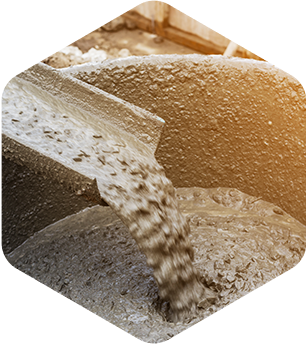Recycling of inert materials
What is-what is an inert matter?
Materials are considered inert if they do not decompose, burn, or produce physical or chemical reactions. Finally, they do not deteriorate other materials in contact in a way that is harmful to the environment or human health. (ADEME definition).
Inert PMCB materials are mainly mineral wastes produced by construction or demolition activities: concrete, tiles and bricks, asphalt aggregates, etc.
The following materials areThe following materials are excluded from the scope of the inert materials sector:
Excavated earth, industrial tools and technical equipment, basic nuclear installations as defined in article L. 593-2, funerary monuments.
How is the inert materials sector organized?
In 2016, the sector's professional organizations signed a commitment for green growth (ECV) relating to the recovery and recycling of inert waste from the construction industry. The objectives are to increase the tonnages recycled and to develop the recovery of the non-recyclable fraction in quarry redevelopment.
In 2012, the collaborative research program RECYBETON was launched, with the objective of increasing the rate of reincorporation of recycled aggregates into concrete in a closed loop. This work culminated in 2018 with the publication of a guide of recommendations "how to recycle concrete in concrete".
The majority of inert waste flows are collected directly on site. In addition, the voluntary collection points (public drop-off centers, professional drop-off centers and collection points on distributors' sites) are almost all equipped with a rubble skip dedicated to the separate collection of inert waste.

Nearly one third of inert waste from the construction sector is recycled as aggregates, mainly used in public works, and more than one third is recovered in the context of quarry redevelopment. A non-negligible part is also reused either in situ or on another site nearby.
How to Valobat intervene?
This sector is now structured and efficient despite some regional disparities. Valobat relies on the existing actors, their experience and their know-how.
Valobat also wishes to develop the sector value-added sector that is not only used in road construction road technology:
- Reuse of inert waste with specific potential: tiles, bricks, cut stone, marble, etc.
- Short loop recycling of concrete in concrete.
- Specific streams such as terracotta or ceramic waste.


